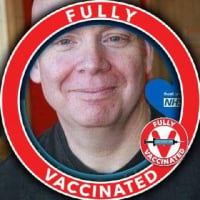The Article That Isn't About Pain Management

Being a retired Hypnotherapist who taught pain management, I thought briefly that I would quickly be able to post something useful on the subject. But now I have been damned to chronic pain for the next four years at least, I find myself throwing all my old notes and scripts in the bin and rethinking the subject from scratch, researching fresh resources on this site and elsewhere. There is a major new written work out later this week on the subject, THE PAINFUL TRUTH by Monty Lyman - I will be devouring it eagerly as soon as I've finished the Tony Iommi autobiography.
New ideas and discoveries, and my own fresh experience have rendered my own previous techniques obsolete. I need to learn a lot more, then shape all that into something practical, before I've got anything to teach to anyone else.
What I CAN share is what I already know about the nature of pain itself. To old hands on here, some of the things I'm going to list are teaching granny to suck eggs. But SOMEBODY might be new to some of it, so I make no apology!
1. EVERYONE'S PERCEPTION OF PAIN IS UNIQUE - no one feels pain like you do, so no one else's description of it is that useful to you. Pain is a department of the PERCEPTION, the part of your mind that makes maps of reality based on your experience, and because your experience is unique, so is your concept of pain.
2. PAIN NERVES FREQUENTLY GIVE FALSE ALARMS AND WRONG DIRECTIONS. Pain should be a damage alert system, but in chronic pain there's often actually no more damage than before you started to hurt, and your brain can get completely bogus information not only about how much damage there is but where it is. In other words chronic pain cannot be trusted as a reliable source of damage status.
3. THERE ARE THREE PLACES WHERE YOU CAN BLOCK PAIN the place where the nerve is being triggered, the synapses (connecting points) between nerve cells, and in the pain reception area of the brain. The trigger point needs some kind of physical/surgical intervention. The synapses can be blocked with drugs or needles (acupuncture) or the pain reception area can be turned off by the brain's focus being elsewhere (trance states, alternative focus). For example, we've all had a bruise and had no idea how we got it. At the time of the injury, we were intensely focused on something else and never registered it. You can be trained to do this at will. However it takes a lot more than a day seminar to get the hang of it.
4. GOOD PAIN MANAGEMENT CAN KILL YOU - Sometimes the information from your pain is RIGHT and you ignore it at your peril. Harry Houdini, master of pain management, died because he ignored the pain from an internal injury, and left unattended, it killed him.
5. PAIN IS A QUESTION OF BELIEF - pain can only hurt if you believe what you're feeling is pain. A genuine masochist believes pain is actually PLEASURE and goes looking for it as a turn-on. Other people believe they can turn it down, or off completely, or distance their awareness from it. They're all correct! Pain is only an electrical pulse going to the brain, and the brain decides how to react to it. The Placebo Effect can also influence belief. People who believe something has cured them will disbelieve subsequent pain signals.
6. EFFECTIVE PAIN MANAGEMENT IS BESPOKE - Once you've finally found a technique that works, it probably won't work as well for anyone else, because it's all about your own perception, your own imagination and what gets your attention.
All very interesting and fine and dandy. But applying all that to create techniques of focus that manage pain is another matter. I've got one that's great when Missus is indulging her pervy enjoyment of squeezing my zits, but I can't apply it to my new hip OA experience, because that hurts when I'm on the move. I have much to learn....
Categories
- All Categories
- 12.9K Our Community
- 10.1K Living with arthritis
- 827 Chat to our Helpline Team
- 5 Surgery - Pre and Post
- 508 Coffee Lounge
- 3 Exercise Resources - view only
- 35 Food and Diet
- 243 Work and financial support
- 6 Want to Get Involved?
- 199 Hints and Tips
- 415 Young people's community
- 13 Parents of Child with Arthritis
- 43 My Triumphs
- 131 Let's Move
- 37 Sports and Hobbies
- 245 Coronavirus (COVID-19)
- 22 How to use your online community
- 46 Community Feedback and ideas